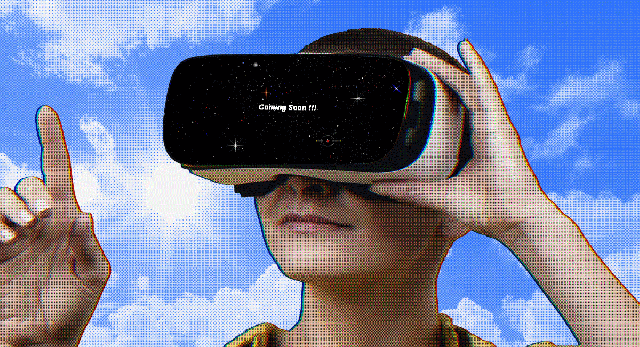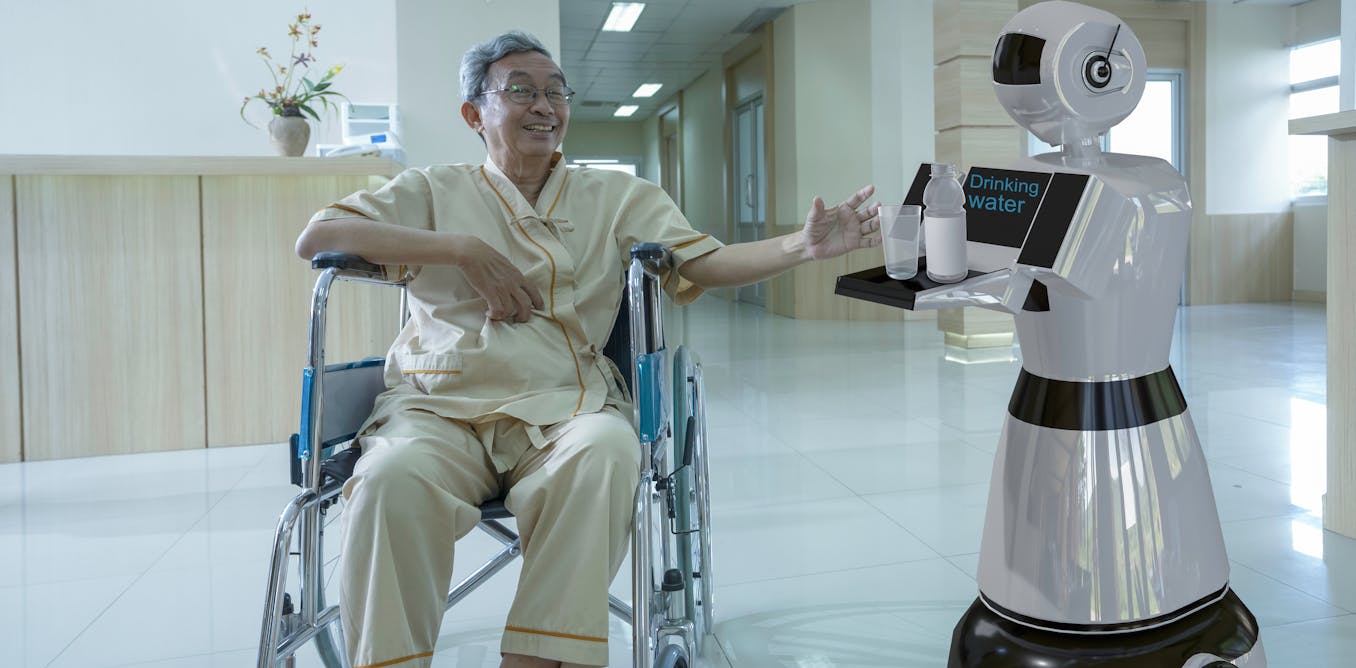- TECHSWU
- Posts
- TECHSWU #77
TECHSWU #77
Welcome to TECHSWU, your go-to destination for all things tech that matter in your daily life!



The fusion of fashion and technology has given birth to smart tech wearables, which are more than just gadgets for health monitoring or staying connected. These stylish accessories match our personal style and offer convenience without sacrificing style.
From smartwatches that track fitness goals to rings that alert you of notifications, smart tech wearables are reshaping our interaction with technology.
Initially focusing on health and fitness, wearable tech has now evolved to include fashion-forward designs.
Brands are collaborating with fashion designers to create pieces that are both stylish and functional, making tech accessories a staple in the modern wardrobe.
When choosing a smart wearable, it's important to consider its functionality and how it complements your personal style.
Look for devices that offer customizable features and extended battery life for everyday use. Also, ensure that the gadget is compatible with your smartphone for a seamless integration and experience.
Integrating technology into our wardrobes also requires environmental consideration. Opting for sustainable smart wearables made with eco-friendly materials or designed for durability can help minimize electronic waste.
Brands are now emphasizing sustainability by offering recyclable parts and energy-efficient designs, allowing us to adopt innovative trends responsibly while aligning with our environmental values.

A new generation of AI-driven robots is emerging as a promising response to the global labor shortage in Silicon Valley. Companies like Tesla, Amazon, Microsoft, and Nvidia are investing in humanoid robots that can carry out tasks typically completed by humans.
While most of these robots are currently being used in warehouse environments, they have the potential to be used in homes and offices as well. Tesla's Optimus, for example, is a humanoid robot built to handle a wide range of jobs, from domestic duties to industrial processes.
These robots can help address labor shortages by automating repetitive and physically taxing jobs, freeing up human workers for more complex tasks. However, the development of AI-driven robots also raises important social and ethical questions that need to be addressed, such as job displacement and ensuring that the benefits of automation are shared fairly.
The introduction of AI-driven robots has the potential to fundamentally change the nature of work, leading to new opportunities and challenges for society.

/cdn.vox-cdn.com/uploads/chorus_asset/file/25534917/1833911955.jpg)
Fei-Fei Li, known as the "godmother of AI," has founded a new startup called World Labs that is already valued at over $1 billion. The company aims to use human-like processing of visual data to advance AI capabilities, particularly in advanced reasoning.
Li's expertise lies in computer vision, and she is known for her contributions to the development of ImageNet, a visual database used for research in visual object recognition. World Labs has received funding from Andreessen Horowitz and Radical Ventures, and Li joined Radical Ventures as a partner in the past year.
The startup is focused on developing models that understand the three-dimensional physical world and has the potential to transform industries like robotics, augmented reality, virtual reality, and computer vision. This investment reflects the growing trend of venture capitalists aligning themselves with ambitious AI companies, following the success of OpenAI's ChatGPT.

Tinder has introduced a new AI-powered feature called "Photo Selector" to help users choose their best profile pictures. The feature uses artificial intelligence to analyze a user's photos and select the ones that are most likely to generate matches.
Tinder's AI technology considers factors such as facial expressions, poses, and even the composition of the photo to determine which pictures are the most attractive. This new feature aims to take the guesswork out of selecting profile pictures and improve users' chances of finding a match.

A recent investigation by Wired and Proof News has revealed that tech companies, including Apple, are using YouTube content without permission to train their artificial intelligence (AI) systems. The investigations found that over 170,000 subtitles from more than 48,000 YouTube channels were used without the creators' consent.
This issue affects both small creators and popular figures like PewDiePie, MrBeast, and Jimmy Kimmel. Tech video creator Marques Brownlee brought attention to the problem, stating that companies are stealing paid transcriptions of his videos.
Wired's report highlights that some wealthy AI companies have violated YouTube's rules by using its content. The debate over whether this practice constitutes theft has sparked online discussions.

Scientists have developed tiny jellyfish robots made of ferrofluid that can be controlled with light. Ferrofluid droplets, which are made of magnetic nanoparticles suspended in oil, can move and change shape when directed by magnets.
Researchers at the Max Planck Institute for Intelligent Systems in Germany immersed these droplets in water and exposed them to light, causing the droplets to defy gravity. The scientists then encased the droplets in a shell of hydrogel shaped like a jellyfish and directed them through an underwater obstacle course using light.
The robots were able to move up and over platforms within the course. The potential applications for these jellyfish robots include delivering chemicals in a liquid mixture or moving fluids through a lab-on-a-chip.
Further research is needed to address safety concerns and explore medical applications.


In an interview with Matthew Ball, the CEO of Epyllion, he explains that the concept of the metaverse is not what most people think it is. While many assume that the metaverse is a 3D world that can only be accessed through virtual reality, Ball argues that it is actually the next evolution of the internet itself.
In his book, "The Metaverse: Fully Revised and Updated Edition: Building the Spatial Internet," Ball explains how the metaverse is not limited to one single company like Meta (formerly known as Facebook) but will be a pervasive presence all around us. He also addresses misconceptions about the metaverse, such as the belief that it will only be experienced through VR headsets or that it will disconnect us from the real world.
Ball emphasizes that the metaverse will be a 3D augmentation of the internet that can be experienced through a variety of interfaces and will change everything.

Grayscale Investments, a prominent asset management firm, has launched the Grayscale Decentralized AI Fund, which provides accredited investors with exposure to the artificial intelligence (AI) sector within the cryptocurrency space. The fund focuses on protocols within the AI and machine learning sectors, aiming to invest in promising projects and technologies.
Currently, the fund consists of several cryptocurrencies, including Bittensor, Filecoin, Livepeer, Near, and Render, with Near commanding the largest share of the allocation. Grayscale plans to rebalance the fund on a quarterly basis, selecting protocols that develop decentralized AI services and address issues related to centralized AI.
The convergence of AI and blockchain has gained significant attention in recent times, with AI-related tokens experiencing substantial price gains.

Want to earn some extra cash? Receipt apps might be the answer. These apps compensate you for sharing your purchase information and receipts with them.
Popular apps like CoinOut, Fetch, Ibotta, and Pogo allow you to earn gift cards or cash back for your shopping. While these apps won't make you rich, they can provide some extra income with minimal effort.
To get started, simply download the app, sign up for an account, and give the app permission to access your camera. Then, snap a photo of your receipt and wait for it to be confirmed.
Some apps even allow you to upload electronic receipts for online purchases. However, it's important to consider the privacy implications of using receipt apps.
You'll be sharing personal information with these apps, which could be at risk of a data breach. So, make sure you understand the app's privacy policies and take precautions to protect your information.

In the near future, robot carers may become a reality for elderly individuals who need assistance with daily activities. In countries like Japan, where the aging population is rapidly increasing, the use of robot carers has gained popularity.
However, the introduction of robots into the nursing profession has raised concerns among nurses due to the fear of losing the personal touch that is associated with care. Nurses are calling for a paradigm shift in how nursing is defined in a digital world.
While some nurses reject the use of robots and AI in healthcare, others believe that these technologies can improve patients' lives. As the demand for healthcare professionals increases, and with the resistance to adopting new technology in the sector, the integration of human compassion and robotic efficiency may be the key to redefining nursing in the 21st century.
By embracing innovation and prioritizing patient needs, nurses can ensure that Florence Nightingale's vision of putting patients first continues to evolve.

In this article, the author explores some of the futuristic gadgets that are revolutionizing the way we care for our dogs. From GPS trackers to smart bowls, these innovative technologies are making it easier for owners to improve their dogs' lives.
One such gadget is the GPS collar, which allows owners to easily track their dog's location using GPS satellites. This can be a lifesaver if your dog ever runs away or gets lost.
Activity monitors are another useful tool, allowing you to track your dog's physical activity, distance traveled, and even calories burned.
When it comes to feeding, technology has also made significant advancements.
Smart bowls can be programmed to dispense the exact amount of food your dog needs, ensuring better control over their weight. Automatic food dispensers are also available, allowing you to feed your dog at specific times, even when you're not at home.
To strengthen the bond between owners and dogs, interactive cameras and smart games have been developed. These cameras not only allow you to monitor your dog, but also interact with them through video calls and games that stimulate their curiosity.
Smart games are a fun way to keep your dog entertained and mentally stimulated when they're home alone.
As technology continues to advance, it's only natural that our pets should benefit from these innovations as well.
The futuristic gadgets discussed in this article are just the beginning of what's to come in the world of dog technology, and they're sure to improve both the quality of life for our dogs and the bond we share with them.

